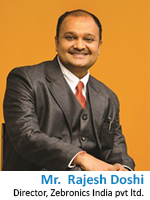Cabinet approves Pradhan Mantri Kaushal Vikas Yojana 2016-2020, which aims at skilling to one crore people over next four years (April 2016 to March 2020) with an outlay of Rs.12, 000 crore.
In line with the vision of the Hon’ble Prime Minister of India, Shri Narendra Modi, a big effort has been made by  Shri Rajiv Pratap Rudy, Union Minister of State for Skill Development and Entrepreneurship (Independent Charge) to scale up the reach of Pradhan Mantri Kaushal Vikas Yojana (PMKVY) which was launched on July 15, 2015.
Shri Rajiv Pratap Rudy, Union Minister of State for Skill Development and Entrepreneurship (Independent Charge) to scale up the reach of Pradhan Mantri Kaushal Vikas Yojana (PMKVY) which was launched on July 15, 2015.
This year on as Skill India is celebrating its anniversary, Ministry of Skill Development and Entrepreneurship has today got an approval from the Cabinet on Pradhan Mantri Kaushal Vikas Yojana 2016-2020, which aims at skilling to one crore people over next four years (April 2016 to March 2020) with an outlay of Rs.12, 000 crore.
Commenting on the approval, Shri Rudy said, “This is a big step for us towards empowering the youth of our country and we are certain to strengthen the system and make these trainings more effective with robust monitoring and outcome, with this new version of PMKVY. We completed close to 20 lakh trainings in 2015-16 under PMKVY and overall did 1.04 crore trainings in the year; and we are all geared up to meet the target that we have set for ourselves now. We seek support from the industry and our partners in making this scheme a successful example worldwide and encourage the youth to reap maximum benefit from it.”
The major features of the revised PMKVY include:
1. To improve the quality of training, the Training Centres will be categorized on the basis of their infrastructure, training capacity, past performance and other relevant parameters. Moreover, instead of short term allocations, the targets will be assigned to the training centres on a long term basis with provision of quarterly review.
2. Dedicated Model Skill Centres to be named as Pradhan Mantri Kaushal Kendra, will be promoted through long term targets spanning up to 3 years subject to quarterly performance review, across all districts in the country.
3. The Scheme will be completely aligned to the Common Norms
4. A special cell will be created to aggregate demand for training across various job roles, sectors etc. in identified geographies from various administrative Ministries to meet specialized requirements linked to new investments or initiatives in their sector viz. Make in India, Swachh Bharat, Digital India and Smart Cities. “Special Projects” would be promoted for such skilling initiatives Financial and physical allocations to the tune of 10%-15% of the Scheme budget will be made for these special projects.
5. The Scheme would move to a grant based model aligned to the Common Norms instead of reward to students, which is converted into training fees by the TPs under the ongoing PMKVY.
6. The concept of Kaushal Melas in coordination with the local State representatives has been institutionalized in order to expand the outreach of the Scheme
7. Training Partners would be required to ensure the validation of Aadhar during enrolments itself and attendance has been mandated through biometrics.
8. On the job training (OJT) component will be encouraged as a part of the training programme to provide linkages to hands-on, employer based training. Training of Trainers (TOT) would be done leading to certification of trainers in a progressive/ gradual manner.
9. Video recordings of assessments will also be promoted this time and a central repository for all the certificates would be created.
10. Training partners will be mandated to have mentorship cum placement cells. Placements would be incentivized as per the Common Norms guidelines. The concept of ‘Placement/Job Melas’ currently being explored would be promoted and institutionalized, and would be led by the Training Partners, supported by the SSCs.
11. A third party agency would be appointed to monitor the validation of all Training Centers. Detailed guidelines would be framed for the SSCs, TPs, Franchises and the Assessment Agencies with respect to revenue sharing, split of the fee between them and other desired parameters. It is also proposed to involve Hon’ble Members of Parliament in mobilisation, monitoring and post training placement of trainees as far as feasible.
12. Residential trainings will be promoted for PwD (Persons with Disabilities) candidates as well as for those from North Eastern States, Kashmir Valley and Leh region of J&K, the islands of Andaman & Nicobar and Lakshadweep, and LWE affected districts and others in accordance with the Common Norms guidelines.
13. Keeping in view the recommendations of the sub group of Chief Ministers on Skill Development regarding the need to address the unique skill requirements of different States, it was proposed in the cabinet that PMKVY scheme to now involve State Governments through a project based approach under the PMKVY 2016-19 with 25% of the total training targets, both financial and physical, being allocated under this stream of the Scheme. The total training targets to be achieved each year.







